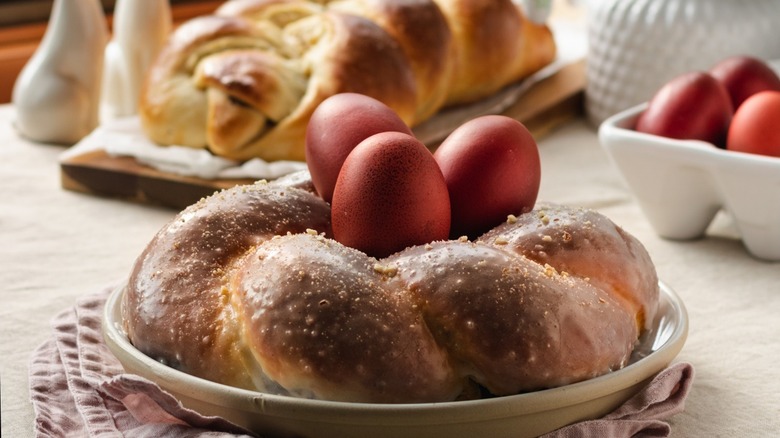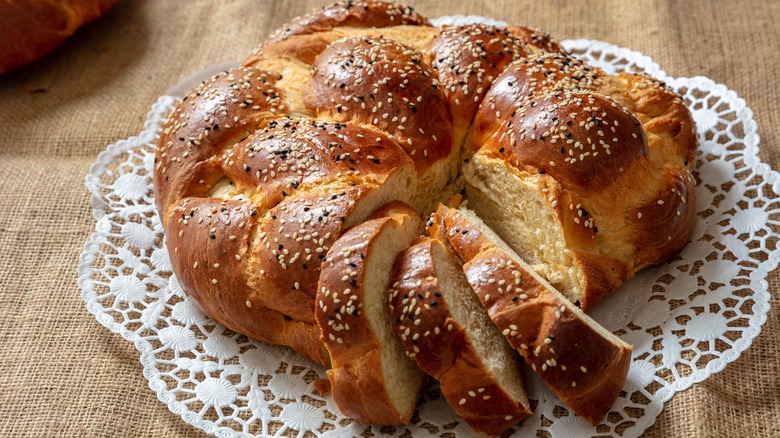Tsoureki Is The Traditional Greek Sweet Bread Served For Easter
Visit Greece the week they celebrate Easter — the Greek Orthodox Easter typically falls on a different day from Catholic Easter — and you are bound to come across sweet tsoureki, a fluffy bread that will remind you of your favorite challah bread recipes. Tsoureki, however, is a baked good uniquely flavored for Greek palates. Loaves can be topped with toasted seeds and smaller bun-like presentations crowned with sliced almonds. But recipes for this Greek Easter specialty food are almost always flavored with mastic, a unique spice, hailing from the Greek island of Chios, and mahlab, a spice made from ground cherry seeds.
Regardless of the exact ingredients used to make the bread, a perfectly made tsoureki offers a crust that is soft and pillowy, formed into braids. These braids are thought to hold religious significance by representing the Holy Trinity. It is not uncommon to find dyed red boiled eggs served alongside the bread during the Easter celebrations, as these colorful eggs also hold symbolic meaning to do with life and victory to honor the religious holiday.
Tsoureki isn't just for Easter
The popularity of tsoureki has made the sweet fluffy bread a now-common staple in bakeries across Greece, and tsoureki lovers can be found snacking on the treat not only in the morning alongside warm cups of coffee but also in the afternoon with a cup of tea. Slices of the spongy bread can be coated in butter or fruit jam or enjoyed simply by fingers tearing apart the stringy, spongy layers.
Making a tsoureki recipe is a labor of love. Recipes can take those preparing them for Easter celebrations or any other event several hours to put together, but the finished result of a buttery, satisfying bite makes all their culinary effort worth it. Though the term tsoureki is derived from the Turkish word to describe corek, a piece of round bread, bakers may choose to make loaves of longer braids or even smaller-sized rolls filled with chocolate to offer to salivating guests. And it's not uncommon for other flavors to be added, such as orange or chestnut spread. If you're booking a holiday in Greece anytime soon, don't miss out on trying some. And count yourself lucky if you happen to live near a Greek pastry shop that sells them.

